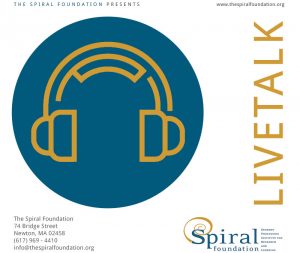Description
Featuring: Margaret L. Bauman, MD
originally recorded February 22, 2016
LiveTalks are hour long audio-only podcasts. This LiveTalk is part of the Advances in Autism bundle.
Description: In this LiveTalk, Dr. Bauman will discuss the groundbreaking research on Autism Spectrum Disorder conducted at the Autism Research Foundation. Current studies that will be discussed include the influence of stress on gastro-intestinal problems and the manifestation of behaviors; influence of brain neurochemistry and hormones on severity of autism symptoms; and the impact of mitochondrial disorders in the treatment of autism. Implications of findings in these studies for professionals treating children will ASD will be discussed.
Learning Objectives:
By the end of this LiveTalk listeners will be able to:
- Describe the impact of stress and related gastro-intestinal problems on the manifestation of behaviors in children with ASD.
- Describe the relationship of brain neurochemistry to the development and treatment of children with ASD.
- Describe the implication of mitochondrial disorders on the treatment of children with ASD.
Course Level: Introductory. There are no prerequisites for this course.
Suitable For: Occupational therapists, OT assistants
AOTA
Domain: Contexts
Process: Intervention
Contact Hours: This course is worth 1.0 contact hours or 0.1 AOTA CEUs.
Completion Requirements: To receive contact hours for this course you must listen to the recorded LiveTalk in its entirety, and complete the accompanying assessment.
About the Speaker: Dr. Margaret L. Bauman is a distinguished pediatric neurologist and research investigator in the diagnosis and treatment of Autism and various neurological disorders in children, adolescents, and adults to include learning and developmental disabilities, seizures, cerebral palsy, and neurogenetic disorders. She is Associate Professor of Neurology, Harvard Medical School and head of the neurobiology research team at The Autism Research Foundation at her lab at Boston University’s School of Medicine. She has been a pioneer in the study and treatment of autism for the past twenty- five years. As one of the world’s foremost physicians in this field, she is highly respected for the outstanding clinical care she provides, as well as for her research and teachings in the domain of developmental disorders. She is the founding director of the LURIE CENTER, formally called LADDERS (Learning and Developmental Disabilities Evaluation and Rehabilitation Services). She also established The Autism Research Foundation (TARF), The Autism Research Consortium (TARC), and The Autism Treatment Network (ATN). Dr. Bauman was awarded the Lifetime Achievement Award by the International Society for Autism Research (INSAR). This award is given annually to an individual who has made “significant fundamental contributions to research in autism spectrum disorders that have had a lasting impact on the field.”
ADA/Section 504: If you require special accommodations, please contact the Spiral Foundation at admin@thespiralfoundation.org or (617) 969-4410 ext. 231.
Continuing Education:

Occupational Therapy Practitioners/ Occupational Therapy Assistants: The Spiral Foundation is an Approved Provider of Continuing Education for occupational therapists and occupational therapy assistants by the American Occupational Therapy Association. The assignment of AOTA CEUs does not imply endorsement of specific course content, products, or clinical procedures by AOTA.



Reviews
There are no reviews yet.